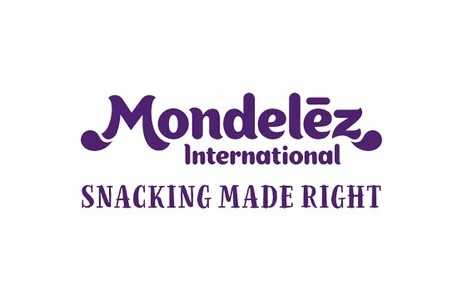CHICAGO, US — Mondelēz International today announced an increased commitment to reduce its use of virgin plastics in its packaging, as part of its ongoing efforts to eliminate, reduce, replace and recycle plastic packaging across its portfolio. The company also said it supported the introduction of a U.S. Federal recycling scheme that takes into account the various types of plastic packaging used across the industry today.
While it already has a significantly below-sector-average use of plastics in its portfolio by weight, Mondelēz International is demonstrating its resolve to continue to reduce plastic packaging. By 2025, the company aims for an at least 25% reduction in virgin plastic use in its rigid plastic packaging or a 5% reduction in virgin plastic use in its overall plastic packaging portfolio, assuming constant portfolio mix.
The virgin plastic use reduction target will be achieved through a combination of measures including elimination of plastic material, increased use of recycled content and the adoption of reuse models for the company’s portfolio where it makes sense to do so.
“Our support for a more sustainable future for plastics is clear,” said Dirk Van de Put, Chairman and Chief Executive Officer, for Mondelēz International. “We’re already one of the most efficient users of plastic packaging in the consumer goods space and we’ve made significant strides to reduce plastic packaging use, substitute plastics for other materials and design for recyclability.”
“Given the strong progress we’ve made in packaging, and our focus on leading a sustainable future for snacking, we’re committing to reductions in virgin plastics use and investments in innovation to remove packaging or switch to more easily recyclable materials.”
These commitments build on the company’s existing 2025 goals to use 5% recycled content by weight across its plastic packaging and to design all packaging for recyclability, a goal the company is on track to achieve with 94% of packaging already designed to be recycled.
The company currently invests over $30 million a year in technology, resources and recycling infrastructure and anticipates an acceleration in this investment over time. In total, between 2019 and 2025, Mondelēz International anticipates spending approximately $300 million in creating a sustainable future for plastics.
Supporting Nationwide Recycling Scheme in U.S.
Mondelēz International’s portfolio of snacks uses lightweight plastic packaging, or so-called flexible films, to protect food, which reduces the company’s plastic packaging footprint by weight and brings some clear environmental benefits such as helping reduce transportation emissions and prolonging food shelf-life. This is meaningful as food waste can have a significantly greater environmental impact than plastics.
While packaging can be increasingly designed for recyclability, recycling infrastructure improvements, such as those proposed under Extended Producer Responsibility (EPR) schemes, are needed globally, particularly for flexible films. The company today is lending its support for a reasonable, Federal EPR scheme in the United States that caters to flexible films, as well as other plastics.
“Increasing recyclability of materials is a great start, but we need actual recycling rates of various materials to increase,” said Christine Montenegro McGrath, Vice President and Chief of Impact. “Compared to rigid plastics like PET, flexible plastic films, like the flow wraps we use on our snacks, are still difficult to collect, sort and reprocess economically, because the infrastructure doesn’t exist yet for this to be done at scale. We are committed to playing our part to improve this, including partnering with stakeholders across sectors to drive action to combat plastics pollution.”
Mondelēz International is an active participant in the Consumer Goods Forum Plastic Coalition of Action; the Business Call for a Global UN Treaty on Plastics Pollution; the U.S. Plastics Pact; the Ellen MacArthur Foundation’s New Plastics Economy Global Commitment; the New Plastics Economy Initiative; the European CEFLEX initiative; the UK Plastics Pact and the UK Flexible Plastic Fund (formerly known as EPPIC); and the Australia/New Zealand Plastics Pact, among others.
Mondelēz International reports transparently on the progress it is making against its Environment, Social Sustainability and Governance commitments, strategies and goals in the Snacking Made Right Report, published annually in early May. For more information, visit www.mondelezinternational.com.


















